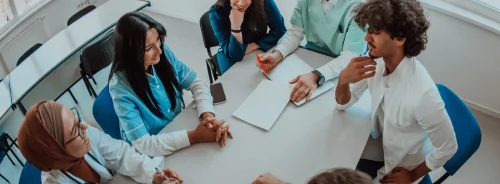In the past decades something happened in healthcare that doesn’t benefit patients. Actually, it is what we patient advocates call ‘Dying is safer’. For some of the stakeholders in the medical industrial complex it is safer to let patients die than to act. We can think of experimental medicines for patients with an unmet medical need. Why not give them that Phase II medicine and ‘try it’? When discussed with the patient, it will not result in a legal claim. Or at least, it will not last.
Today this phenomenon is seen in how the use of two vaccines against COVID-19 is being delayed. The AstraZeneca vaccine has a chance of four in a million that thrombosis will occur (Janssen has an even smaller chance). And if it does, there is treatment available. So, the chance of dying is close to zero. Nevertheless, countries refrain from vaccinations while we know that this costs hundreds of lives, postpones the moment when we can open society, and indirectly, costs the lives of patients with cancer and other serious diseases.
Countries refrain from vaccinations while we know that this costs hundreds of lives
This phenomenon has to do with accountability and not with compassion to those who get this thrombosis. Governments are afraid and accept the death of ‘hundreds’ over one claim from a person who got the ‘good-to-treat’ thrombosis.
I consider accountability and responsibility, from the human perspective, as belonging to the same category. The government is accountable and responsible. The government is responsible for the death of these ‘hundreds’. Out of this responsibility evolves accountability. The issue is that nobody holds the government accountable for these deaths and brings it to trial. Until one does...
We all want to continue with vaccination, but we nevertheless pause it. We all know this is wrong. Human nature holds some peculiar features. Most people are obedient, look in another direction and work according to the rules. They are never disobedient and accept a tremendous amount of misery before they act. And sometimes they never act accepting death instead. We remember what American historian Howard Zinn once said: “Civil disobedience is not our problem. Our problem is civil obedience.”
It is not easy to solve, but it helps when the distracted government feels the misery of the people it ought to serve. Let policymakers and decision-makers work for one day a week among patients who need their good decisions. Then they will ‘do the right thing’. The closer to patients you are, the better your decisions are and the higher the quality of the output is. It makes you responsible and accountable and it brings you satisfaction...






